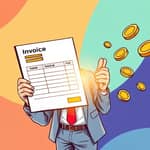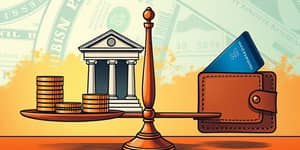
When traditional banks turn away applicants with low or no credit history, no credit check personal loans can seem like a lifeline. These loans promise rapid approval and minimal paperwork, tempting borrowers in urgent need. Yet before diving into terms that sound too good to be true, it’s crucial to understand the underlying mechanics, costs, and potential consequences of such financing.
No credit check personal loans bypass the usual review of your credit report. Instead, lenders focus on alternative indicators like income verification and employment status. This model aims to serve individuals with limited or no previous borrowing experience who would otherwise be shut out.
Approval is often fast and often online, with funds deposited as quickly as the same business day. However, offers that guarantee approval regardless of applicant details should raise immediate suspicion.
Without a credit check, lenders hedge risk through elevated fees and skyrocketing interest rates. Typical payday and title loans feature typical APRs reaching 200% or more, compared to 6.49–36% for conventional personal loans.
For context, a $2,000 loan at 36% APR costs about $201 per month, totaling $2,411 in a year. At 200% APR, that same loan rises to $396 monthly, $4,746 in total – nearly double the expense. Even borrowing $100 over two weeks with a $10 fee equates to a 260% APR in payday scenarios.
Before weighing options, it helps to see the benefits and drawbacks side by side.
Imagine a single parent facing an unexpected car repair. Their credit score is too low for a credit union loan, and they need funds immediately to commute to work. A no credit check title loan might provide quick cash, but the high fees can eat up weeks of income.
Alternatively, a recent graduate with no credit history might seek to cover moving expenses. While the fast approval looks attractive, the extreme APR could outweigh any short-term benefit. Without a built-in grace period, a small delay in repayment triggers late fees and even harsher rates.
Before accepting sky-high rates, explore safer paths. Secured personal loans allow you to use collateral to secure loans—often resulting in more reasonable interest. Credit-builder loans, offered by some credit unions, let you make small monthly payments that are reported to credit bureaus.
Online marketplaces now enable rate shopping with a soft credit pull, keeping your score intact until you commit. If trust and relationship permit, borrowing from family or friends may incur minimal interest, though it carries its own risks. Nonprofit credit counseling agencies can also negotiate alternative repayment plans or hardship options.
In rare, genuine emergencies—such as urgent medical bills or sudden loss of income—a no credit check loan can bridge a gap. Only proceed if you have a realistic repayment plan and have exhausted all other financial resources. Calculate total repayment, fees, and any rollovers to ensure you won’t fall into chronic borrowing.
Spot red flags early. Avoid lenders promising guaranteed approval without any verification. Steer clear of unclear fee structures or refusal to disclose APR in writing. Check state licensing and read customer reviews—if a lender operates offshore or lacks transparent registration, it’s best to walk away.
No credit check personal loans can feel empowering when you’re denied elsewhere, but their steep costs and risks demand caution. By understanding the true price of quick cash, exploring alternatives, and planning diligently, you can avoid the pitfalls that trap so many borrowers in unending debt cycles.
Empower yourself: research every option, ask hard questions, and treat borrowing as a strategic decision rather than an easy way out. With knowledge and care, you can navigate financial challenges without sacrificing your future security.
References













